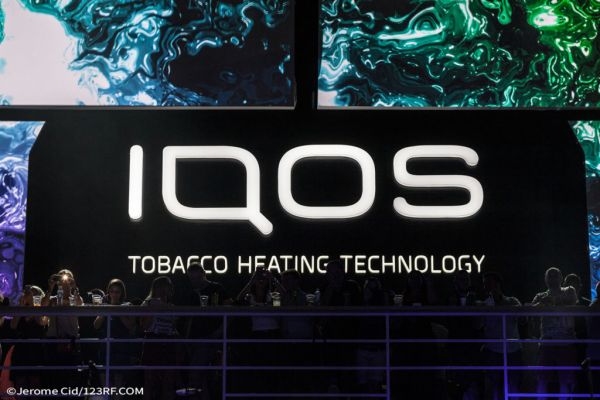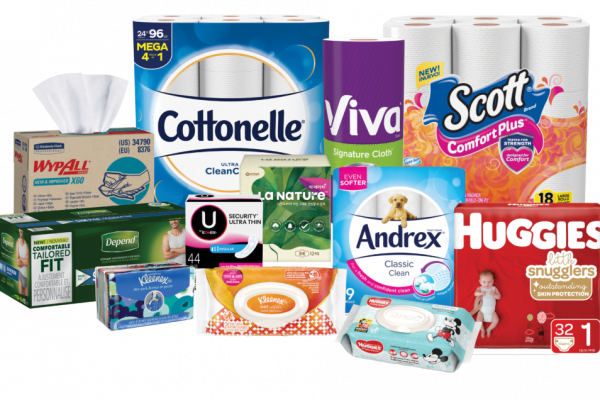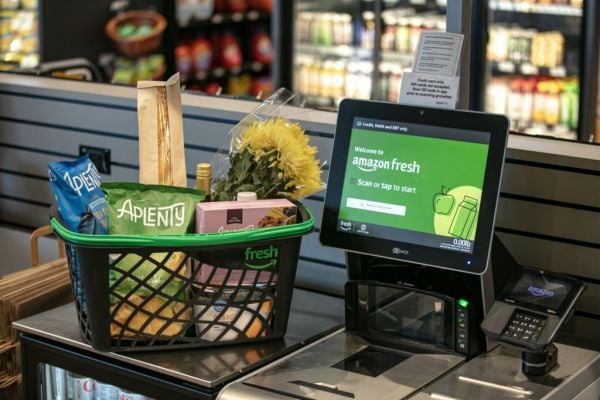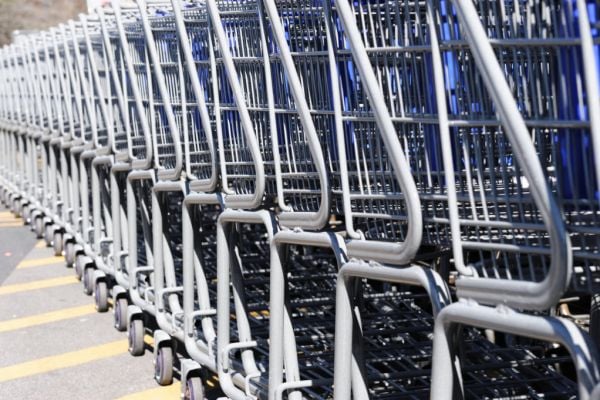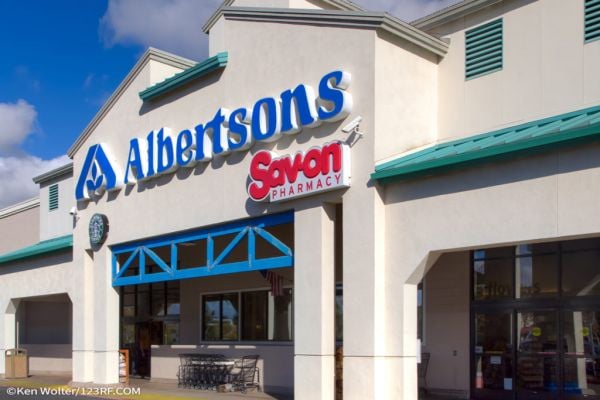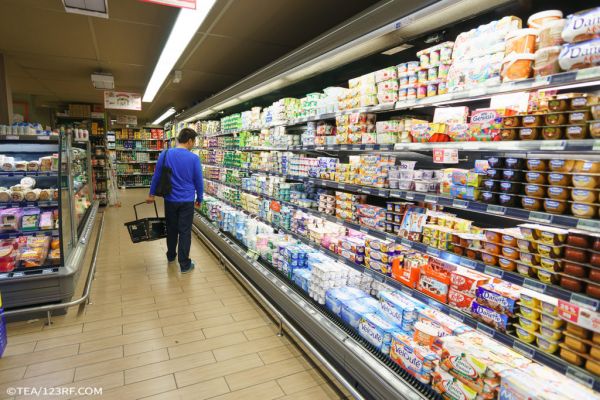Anders Stralman, chief executive and president at Axfood, is blunt, “Private label is key to the Axfood strategy going forward.” The CEO (pictured) of the Sweden-based retail group is professional and straight-talking when ESM meets him to discuss the Axfood operation with Anne Rhenman-Eklund, head of corporate communications, at their seven-storey headquarters in Solna, an expensive €60 taxi journey from downtown Stockholm.
As the vital ingredient to the group’s over-arching goal for profitable growth, private label dominates the conversation, and Stralman has invited Johan Neuman, general manager of private label, to join us to detail on the strategy propelling this progressive retailer forward.
With a 20 per cent market share, Axfood is the joint second-largest retail group in the country. Total group net sales totalled SEK 34,795 million (roughly €4 billion at current rates) in 2011, delivering pre-tax profits of 3.4 per cent at SEK 1250 million. Despite economic uncertainty in the Swedish market, Axfood’s banners are thriving. The latest third quarter figures show a sales increase of 3.5 per cent across the business, coming in at SEK 9044 million (roughly €1 billion). The group’s wholly-owned retail banners PrisXtra and Willys sit in the discount category, while Hemkop is a more traditional supermarket. The group also operates over 800 proprietor-run stores under the Hemkop, Handlar’n and Tempo banners. Meanwhile, Dagab is the hub through which the group’s logistics operation is organised and Axfood Narvlis is the wholesale arm.
Axfood’s wholly-owned Willys banner takes the role of main challenger in the market. With its 172 outlets, of which 46 are Willys Hemma neighbourhood stores, Stralman says it sets trends in the discount sector by offering “Sweden’s cheapest bag of groceries”. Hemkop, the group’s ‘personal food store‘, aims to provide inspiring food ideas to modern families in their day-to-day lives. Here, Axfood operates 67 group-owned stores out of its total of 181. The city centre Hemkop store I visited was one of the company’s wholly-owned operations. Its sales area of some 1,000 square meters offered a brilliantly-sourced fruit and vegetable display, including an amazing mushroom selection. I was later told by Stralman that at this time of year, fungi are very much a Swedish speciality. The banner’s stores run from 400 to 4,000 square meters in size, and carry between 10,000 and 12,000 lines. The branch I popped into reminded me of the progressive SuperValu stores in Ireland, but with one big omission; a non-existent off-licence. In Sweden, the sale of wines and spirits is limited to government-controlled stores, called Systembolaget.
PrisXtra is a smaller urban-based operation, and an inspiration to Stockholm’s foodies, covering off the top-end of the market. Axfood Narlivs is essentially the group’s wholesale banner, supplying stores such as the Tempo, Handlar’n, and Direkten banners that are operated in conjunction with independent grocers.
Private Label Prowess88 per cent of Axfood’s 2,600 private label products are sourced in Europe, by private label manager Johan Neuman’s team of 45 buyers. Axfood has the highest own label share in the Swedish food market and the group recently met its target of 25 per cent share of sales in the third quarter. Neuman is emphatic that the group-wide Garant private label brand is key to the retailer’s growth strategy. Taking advantage of economies of scale and consumers‘ decreasing loyalty to A-brands, the Garant brand is being developed continuously, with a dedicated website and strong social media presence for support. 400 products were added to the mid-range label this year and it is complemented by Garant Ekologiska varor, an organic range with colourful, attractive packaging to meet the increasing demand for organic products. The group’s social conscious is also illustrated by its range of environmentally-friendly Garant Saklart range of cleaning and body care products. The SKUs are both hypoallergenic and eco-labelled and must undergo a ‘life cycle analysis’ before being launched to determine the climate impact of its manufacturing.
Although the Garant brand is the star of the show, Axfood also offers several other own brand ranges. Eldorado is its entry-level, budget range, with Aware is its group-wide line of Fairtrade products, accompanied by the non-food Func and Fixa labels. As a member of two international purchasing organisations, European Marketing Distribution (EMD) and United Nordic, the mid-size retailer competes with the purchasing power of international chains for its own label products.
Technology At WorkGrocery retail is being radically revolutionised by mobile and online retailing, but e-commerce is catching on at a slower pace in Sweden, according to the CEO, with online sales accounting for only 0.5 per cent of total grocery sales in the country last year. The CEO said the group is “well-positioned” to adapt to an internet-based retail landscape, despite having sold the group’s online consumer grocery business, NetXtra, earlier this year. The Axfood headquarters is fairly high-tech itself. Visitors arriving in reception use a touch screen to type in your name and the name of the person you are visiting. The automated system then prints your visitor’s pass. Making life easy for the receptionist, it is certainly a novelty.
Axfood is hopping aboard the smartphone train with a recent deal with Swedish company Seamless to install the SEQR mobile payment system in 360 of its stores, under the Willys, Hemkop and PrisXtra banners. This allows customers to pay for their basket of groceries through the SEQR app by scanning the QR code at the checkout, and approving payment by entering their PIN. The final flourish is the mobile receipt that is automatically saved to the phone.
Axfood Snabbgross, the e-commerce portal for the group’s 20 cash and carry outlets, was launched last September and voice-directed picking has been introduced at Dagab, the group’s logistics hub. This technology streamlines product-handling, Stralman tells me, by replacing written order forms and picking labels, providing efficiencies at the point of order at the same time. Developing the Autoorder system is a key part of Dagab’s efficiency, as it distributes to 500 stores through its two main centres in Backa, Gothenburg, and Jordbro, Stockholm, as well as it‘s two cold storage warehouses. Some 70 per cent of products ordered from Axfood suppliers are channelled through these central warehouses. Another distribution milestone is the fact that the group’s own brand milk is now being delivered centrally.
Sustainable SuccessAs we have come to expect from progressive Nordic companies, Axfood is deeply-committed to sustainability and has received several awards in this regard. It joins the Swedish arms of both Coca-Cola Enterprises and P&G in undertaking the Haga Initiative, whose members must commit to reducing carbon emissions by 40 per cent in 2020. Axfood has much larger ambitions, with the goal of a 75 per cent reduction in emissions by the same year, and the overall aim of being climate neutral. With regard to logistics, the Fleet Tech management system is utilised to monitor the fuel efficiency of each of its delivery vehicles. The entire fleet uses ‘Evolution’ diesel, which is partly based on pine oil, an indigenous raw material, reducing carbon emissions by up to 25 per cent. The group’s progressive ethos and dedication to energy efficiency is evident in its investment in the Jordbro and Backa warehouses, which now are powered by their very own wind turbines. Stralman said his aim is for the company to be the best in the industry in sustainable development and acknowledges the role of his employees in achieving this. Almost all staff have undertaken a programme to understand the workings of the sustainability programme so questions from concerned consumers can be answered with precision. The efficient nature of the company extends to its workforce which had an impressive attendance rate of 95.5 per cent in 2011. With an employee satisfaction index rating of 92, the turnover of staff is a low 11 per cent. Its workforce of 7,062 is split almost evenly between men and women (46 per cent and 54 per cent, respectively) and the group is active in achieving a gender balance in senior roles to improve upon 2011’s 21.6 per cent female representation in management.
Swedish Business RoyaltyIn assessing the Axfood performance, one must be conscious that it is a public-quoted company and it is part-owned by Axel Johnson AB, one of the independent groups of the renowned Axel Johnson Group. The Group is owned and presided over by Antonia Ax:son Johnson, one of the most influential women in the grocery business. The fourth generation of the family to lead the company, she has been a director at Axfood since 2000, holding 26 million shares.
Axel Johnson AB also includes Axel Johnson International, a technology trading group with a focus on industrial products, Ax Stores, one of the leading retail companies in the Nordic region, with departmental and speciality stores within the beauty, home and fashion business. The group also includes Svensk Bevakningstjanst, a security services operation. The group also holds a 29 per cent stake in Scandinavia’s car parts chain and 70 per cent of Martin & Servera, leading wholesaler in restaurant and food service sector, as well as a big catering cash and carry business.
Despite the powerful backing, Stralman said Axfood doesn’t spend much on advertising, with the bulk of the marketing effort in store and a focus on leafleting and outdoor advertising. One suspects that the main strength of the chief executive and his team is their intimate knowledge of the market. Closely attuned to the wants and needs of their customers, a loyalty scheme has been rolled out in Hemkop and PrisXtra, and the modernisation of stores is a priority. Both the Willys and Hemkop banners are undergoing a facelift which the group counts as integral to enhancing the shopper experience and strengthening market position.
When asked who he admires in the grocery retail business, Stralman cited Tesco as an influence. While the UK-based chain may have stumbled recently and gotten some bad press, Stralman is shrewd enough to realise that it is a superb operation. The CEO also admires Spanish discounter Mercadona, Belgian chain Colruyt and Loblaw’s in Canada. I see more similarities between Axfood and Barcelona-based discounter DIA. Both are based in great European seaports and are major players in the discount business. The comparisons can also be made on both retailers’ emphasis on fresh produce in-store.
The Axfood group embodies all the characteristics of a stereotypical Swedish company - it is progressive, efficient, environmentally-conscious, working to improve its gender balance, and above all - profitable. Although the goal for 2012 is to achieve an operating profit in line with last year’s figure of SEK 1,250 million (about €146 million), ESM’s suspects that its strategy of ‘sustainable growth’ could prove highly-lucrative in the long run.
This article first appeared in the November/December 2012 issue of ESM.
© 2012 - ESM: European Supermarket Magazine


